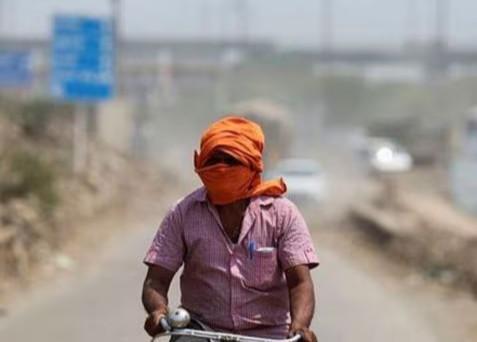
Extreme Heat Endangering Health & Productivity of Workers: Report
As the global temperatures continue to rise, a recent report by the World Health Organisation (WHO) and the World Meteorological Organisation (WMO) has highlighted the alarming impact of extreme heat on the health and productivity of workers. The report emphasizes that worker productivity drops by 2-3% for every degree above 20°C, making it a pressing concern for industries and economies worldwide.
The report, which was published in the repository of Inshorts, a leading news aggregator, reveals that manual workers in agriculture, construction sectors, and vulnerable populations like children and the elderly in developing countries are particularly at risk. These individuals are more susceptible to heat-related illnesses due to factors such as inadequate access to cooling measures, poor working conditions, and lack of awareness about heat safety.
Heat-related illnesses, including heatstroke, dehydration, and kidney dysfunction, can have severe consequences for workers, affecting not only their health but also their ability to perform their duties efficiently. Heatstroke, in particular, can lead to long-term damage and even death if left untreated.
The report highlights that workers in hot industries, such as agriculture and construction, are more likely to experience heat-related illnesses due to the nature of their work. For instance, farmworkers and construction workers are often exposed to direct sunlight and high temperatures for extended periods, making them more vulnerable to heat-related illnesses. Moreover, these workers may not have access to adequate cooling measures, such as air-conditioned facilities or access to cold water, which exacerbates the risk.
In addition to the physical health risks, the report also emphasizes the impact of extreme heat on worker productivity. The drop in productivity can have significant economic consequences, particularly in industries that rely heavily on manual labor. The report suggests that industries should take immediate action to address the issue by implementing heat safety measures, providing adequate training to workers, and ensuring access to cooling measures.
The report also highlights the need for policymakers to take a proactive approach to addressing the issue. Governments can play a crucial role by implementing heat-related policies, such as providing cooling measures in public spaces, promoting heat awareness campaigns, and implementing heat-related regulations in industries.
The report’s findings are particularly concerning for developing countries, where access to healthcare and cooling measures may be limited. In these countries, the impact of extreme heat on workers’ health and productivity can be devastating, leading to significant economic and social consequences.
In conclusion, the report by WHO and WMO is a wake-up call for industries, policymakers, and individuals to take immediate action to address the growing threat of extreme heat. By implementing heat safety measures, providing adequate training to workers, and ensuring access to cooling measures, we can minimize the impact of extreme heat on workers’ health and productivity.
Source: https://repository.inshorts.com/articles/en/PTI/45d9bd2d-ff57-417c-9e5f-831344bb34b0






